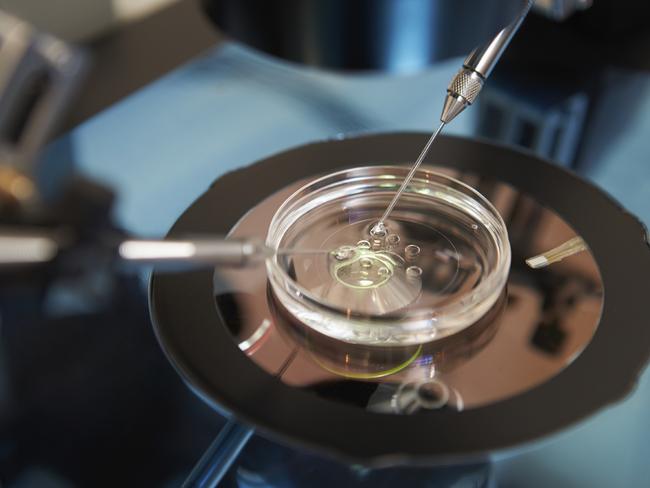Scientists uncover fault with common fertility test that could affect Australian women
A MAJOR fault with a common fertility test may have led thousands of Australian women astray, affecting their decision to have children.

Pregnancy
Don't miss out on the headlines from Pregnancy. Followed categories will be added to My News.
THOUSANDS of Australian women may have paid for unnecessary fertility treatment or given up on having kids because of a major fault with a common fertility test.
The Anti-Müllerian hormone (AMH) or egg timer test used to measure ovarian reserves has been found to have underestimated the number of eggs a woman has left by up to 283 per cent.
Doctors noticed that there had been a spate of falsely low readings since 2011 and the testing protocol was revised in July 2013 as a result of these concerns.
Now a new study conducted between 2012 and 2015 by scientists from fertility company Genea has found the old protocol used to test fertility underestimated egg levels by between 3.4 to 283.3 per cent compared to the new protocol introduced in 2013.
“It shows that many of those thousands of Australian women who undertook an AMH test between 2011 and mid-2013 were potentially given falsely low results,” Genea medical director Assoc Professor Mark Bowman said.
“We, along with other fertility clinics, realised that some of the low readings that were coming back were significantly out of step with our expectations so the testing protocol was assessed and revised in July 2013,” says Genea medical director Associate Professor Mark Bowman.

“We have always warned women that while the AMH test can give an indication of ovarian reserves, it is not a fail safe test of potential fertility. While the number of eggs a woman has left is important to her ability to conceive, equally so is the quality of her eggs,” Professor Bowman said.
In 2011, the standard test for AMH became the Beckman Coulter Generation (Gen) II assay.
This was the method of calculating a woman’s fertility that has been found to produce falsely low results.
The Genea study published in the Journal of Assisted Reproduction and Genetics compared this testing protocol with the revised protocol and found that the original protocol significantly underestimated results, by an average of 68 per cent.
In the study, AMH levels were measured for 492 natural conception women aged between 20 and 44 years using the original and revised Gen II assay. The comparison found the original protocol significantly underestimated AMH levels.
Have you been affected? Tell us below or email Sue Dunlevy at sue.dunlevy@news.com.au
Originally published as Scientists uncover fault with common fertility test that could affect Australian women



